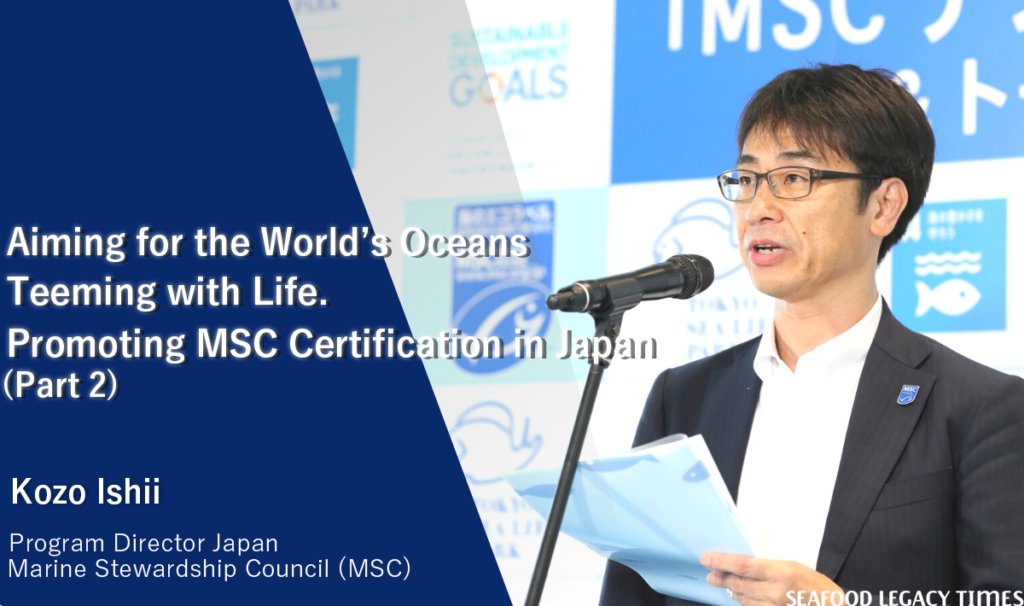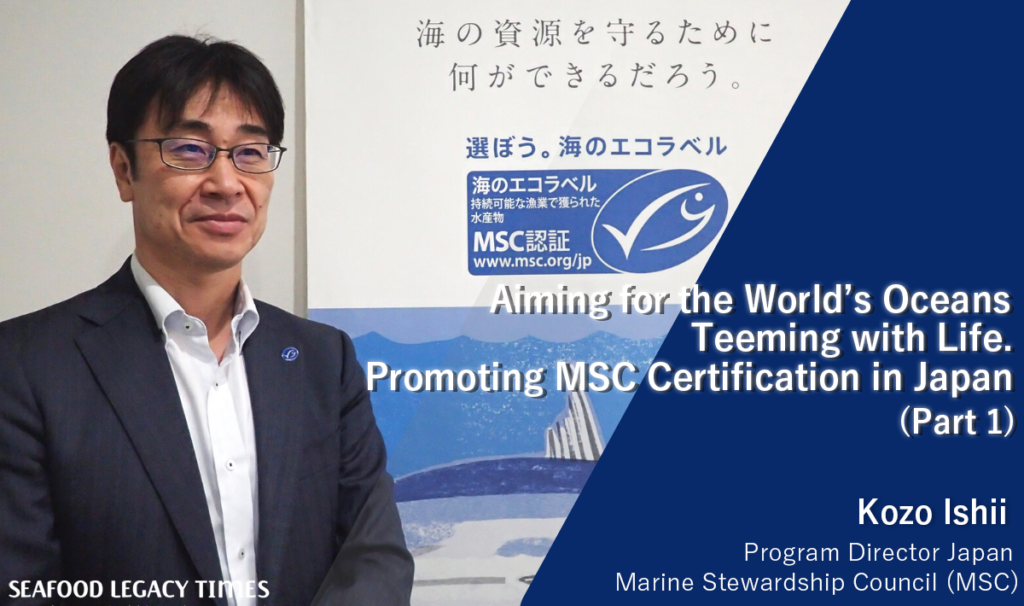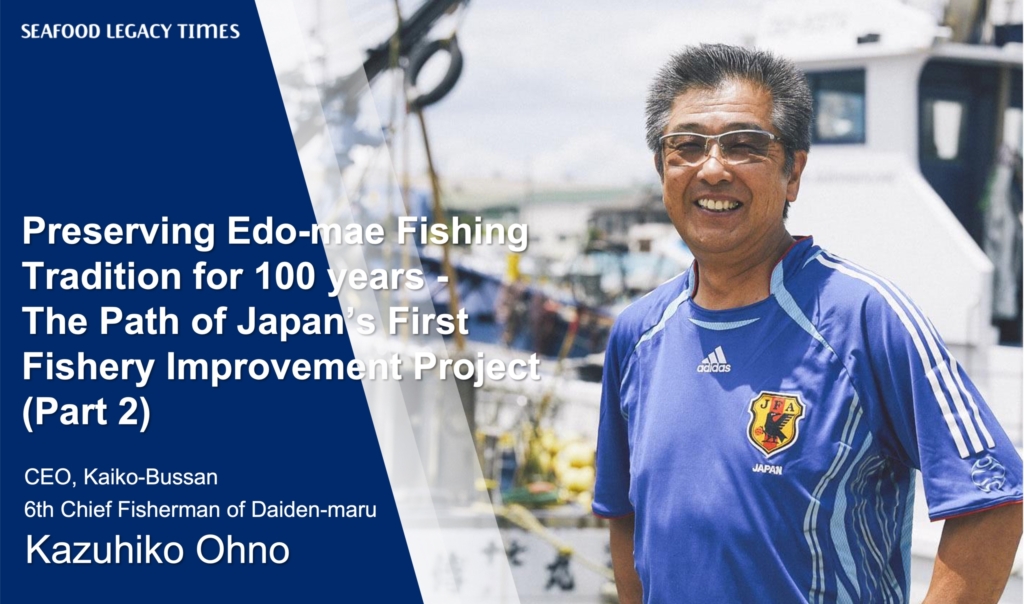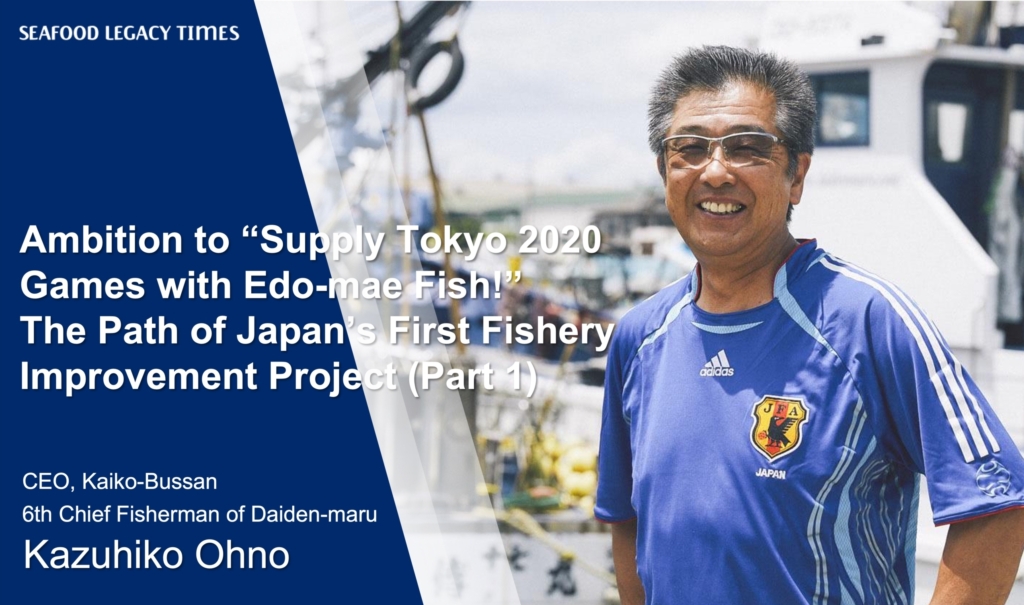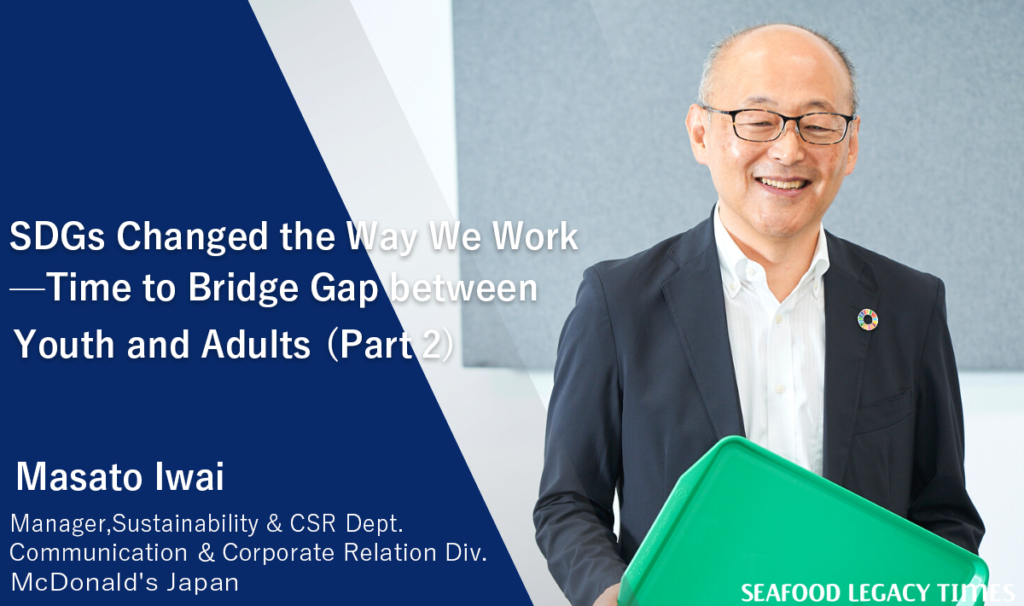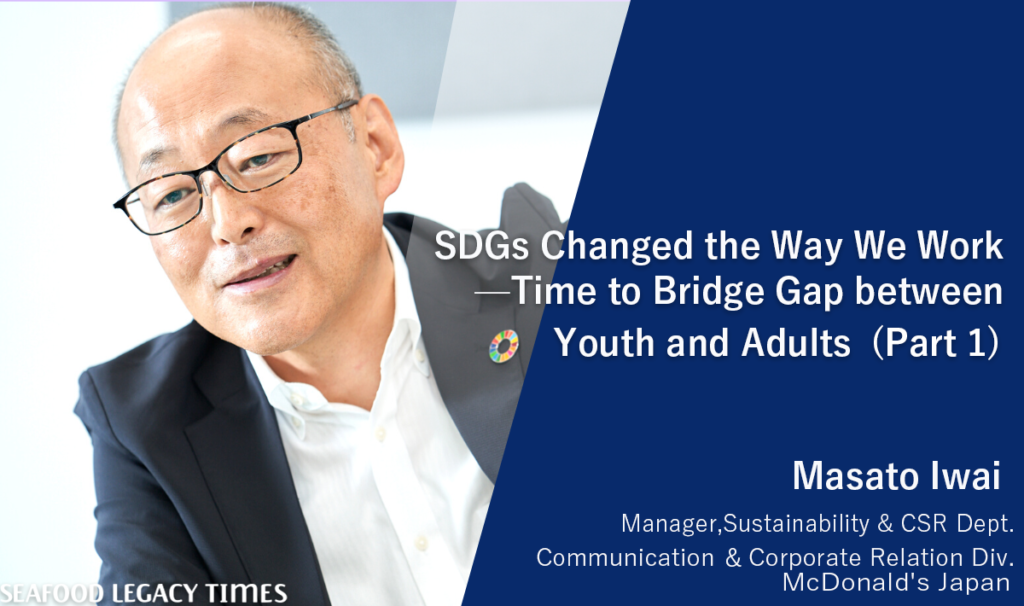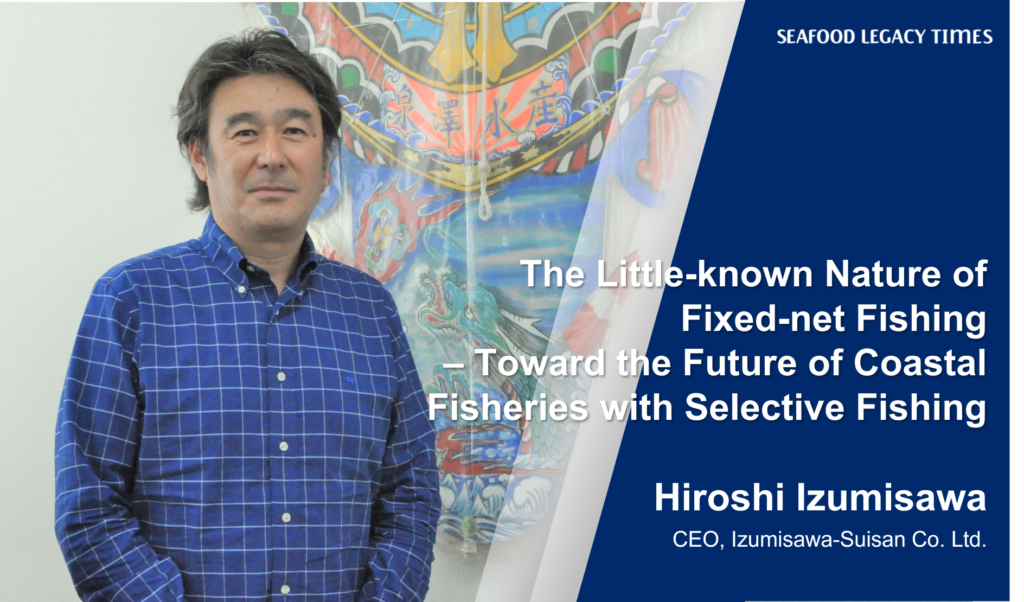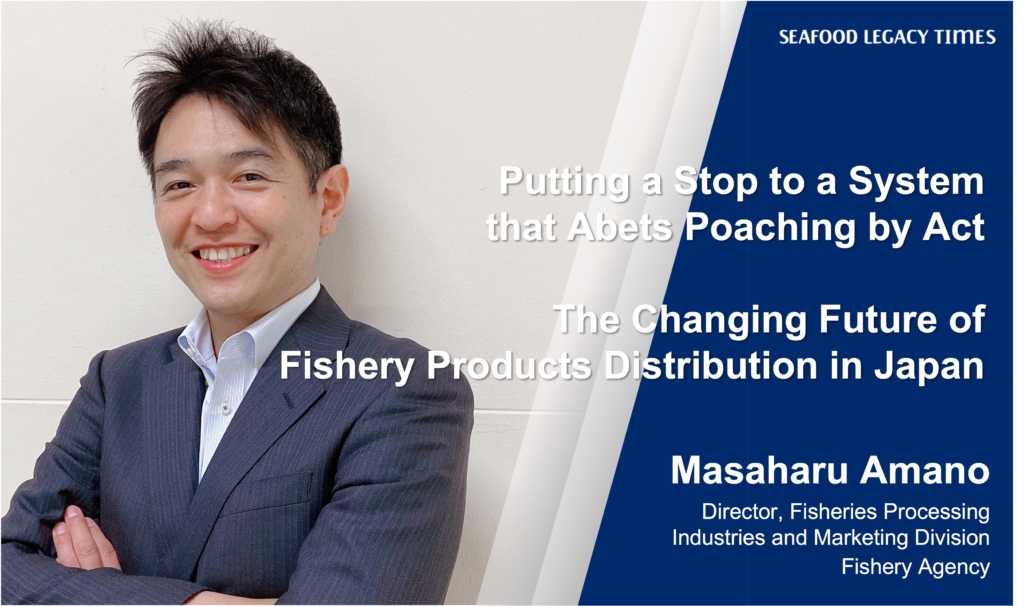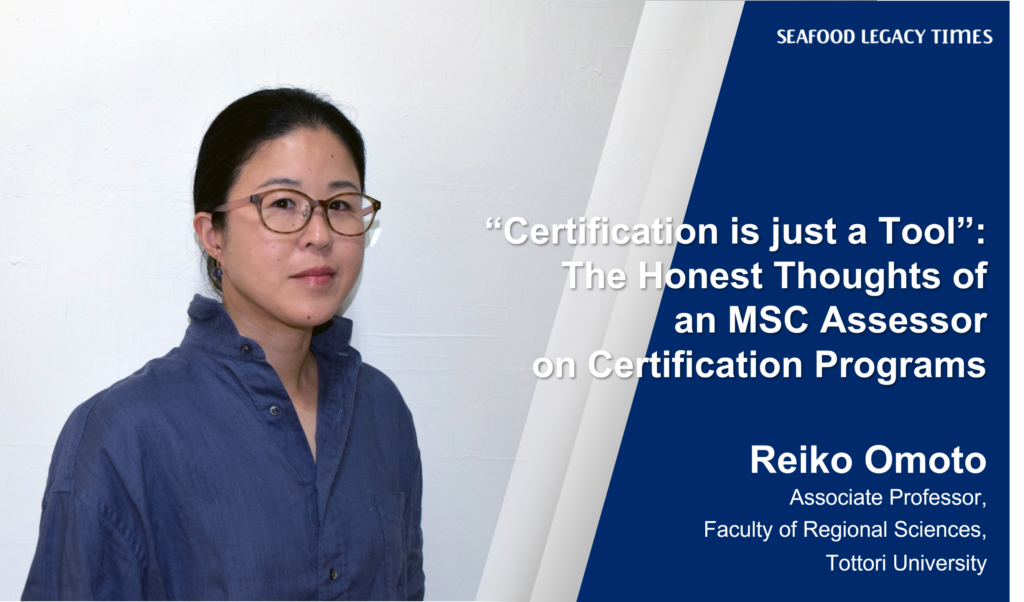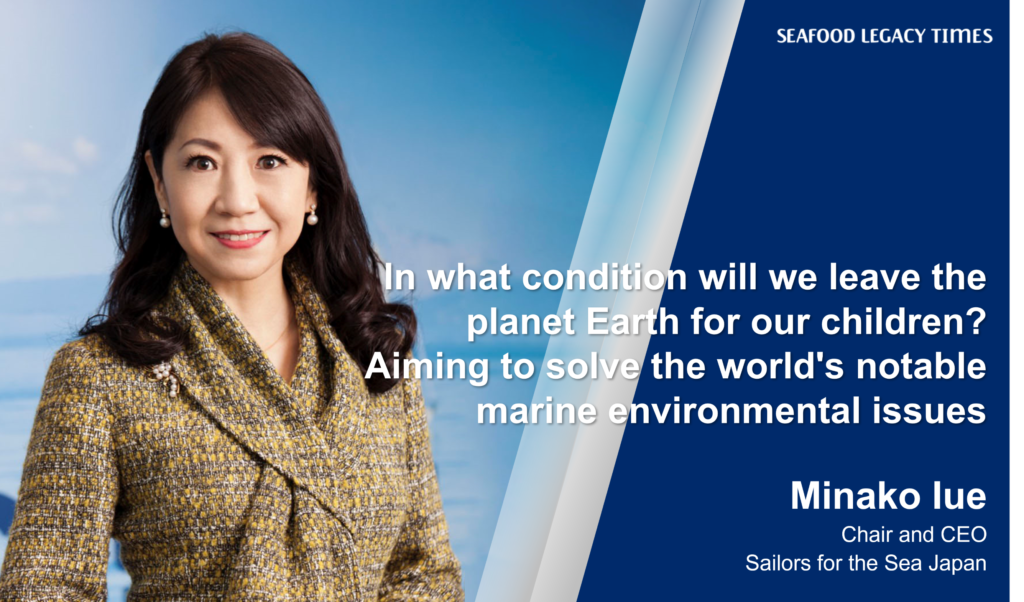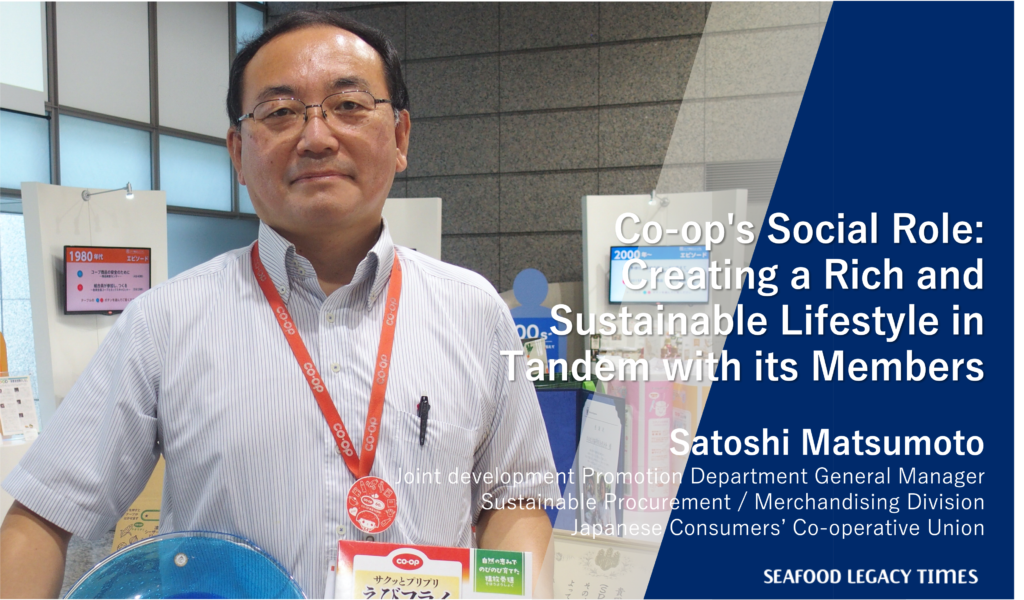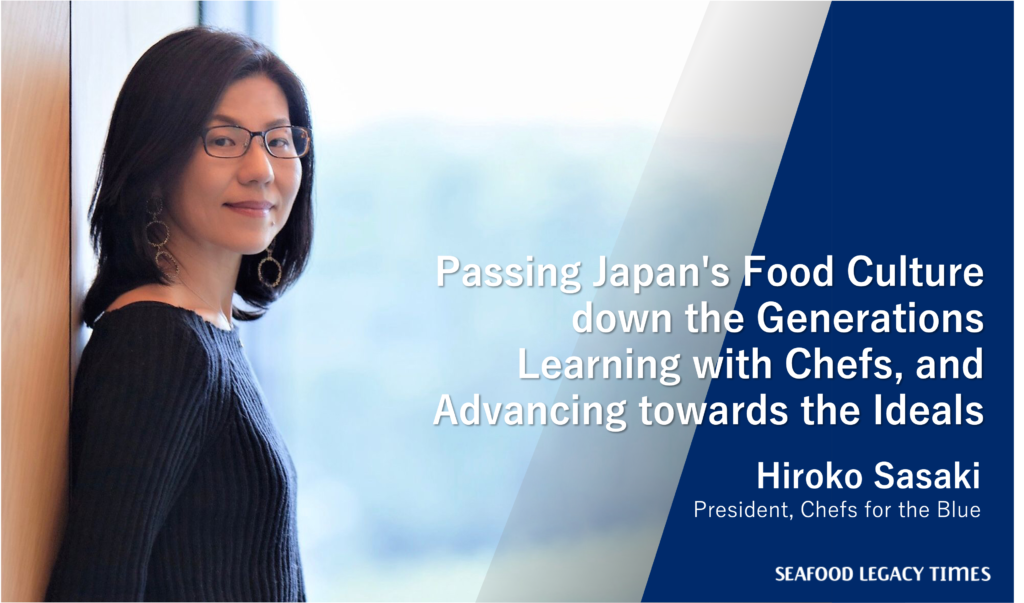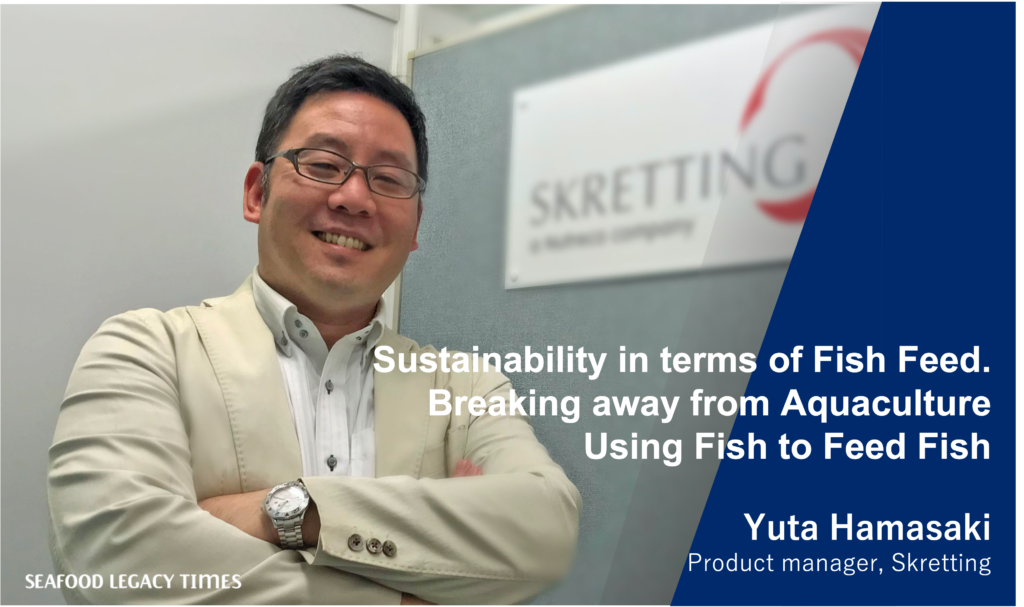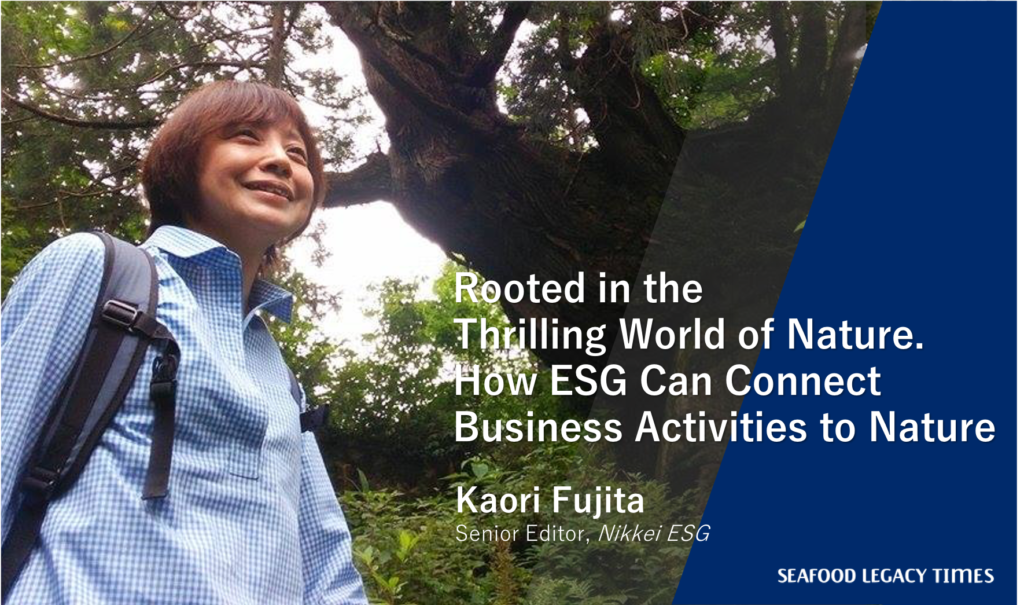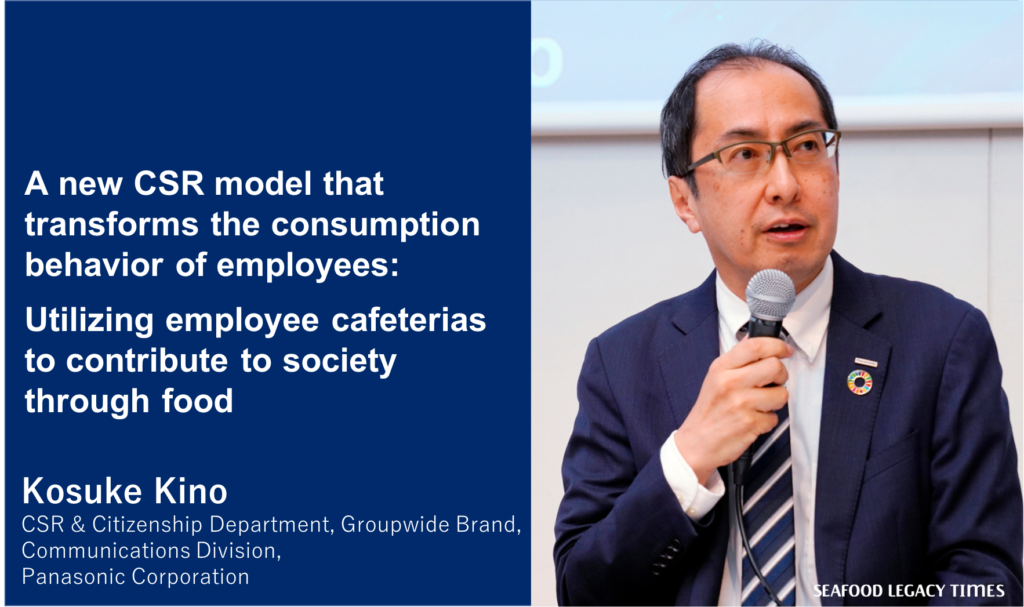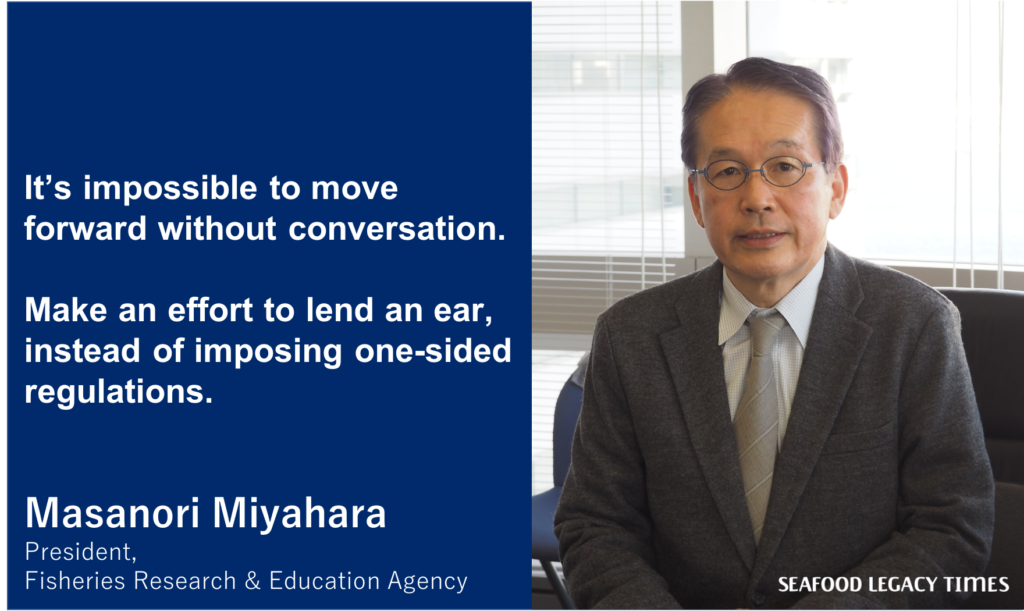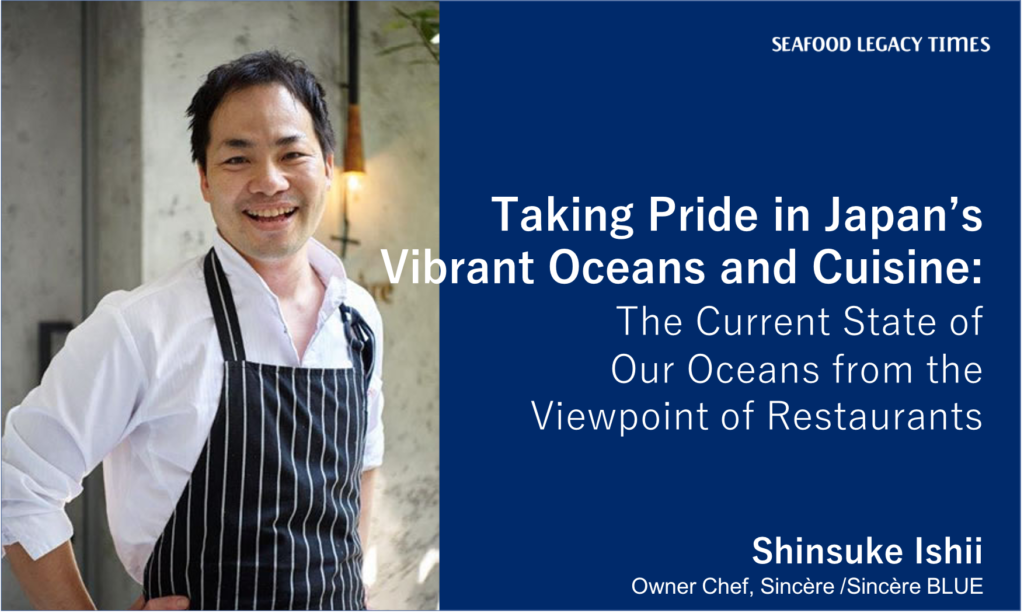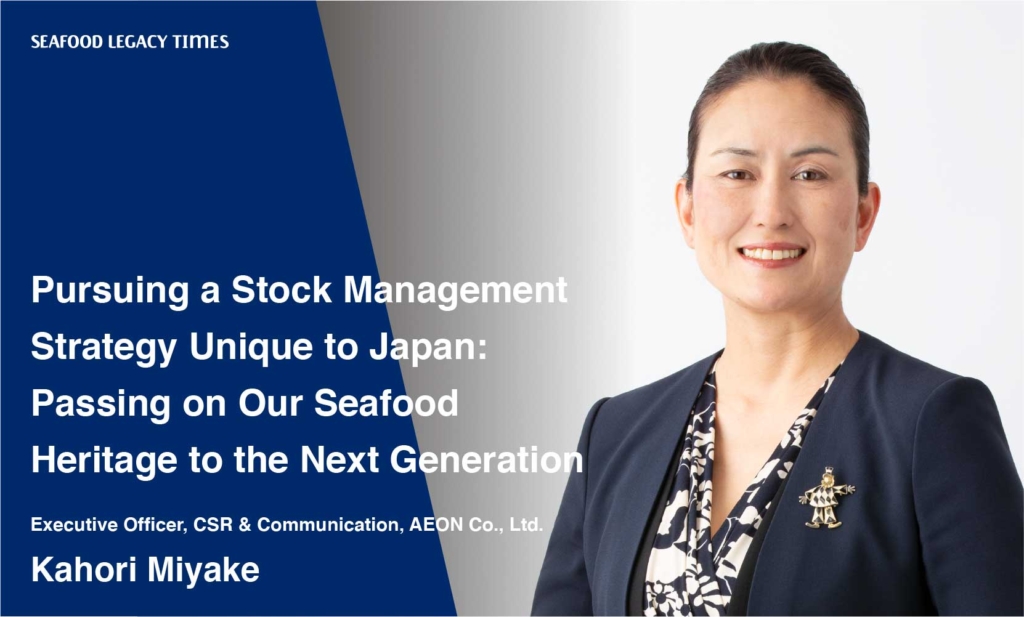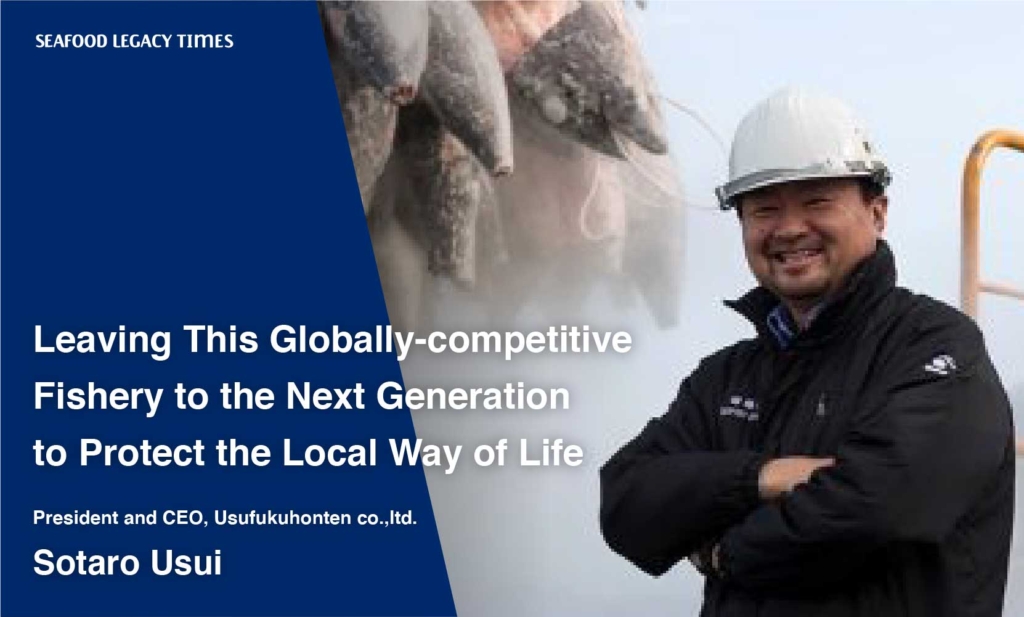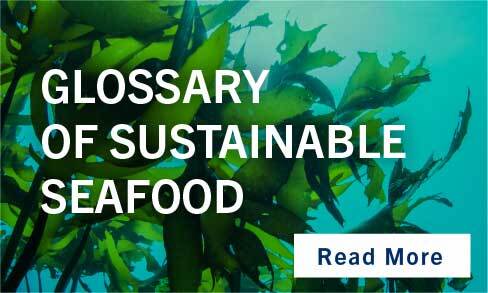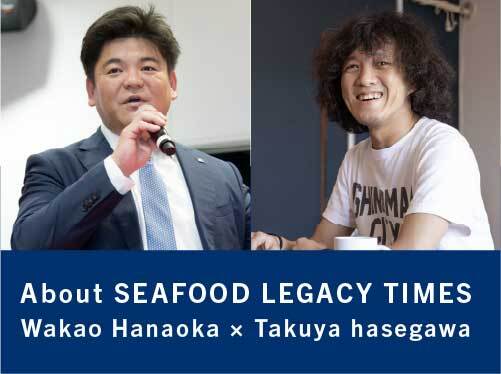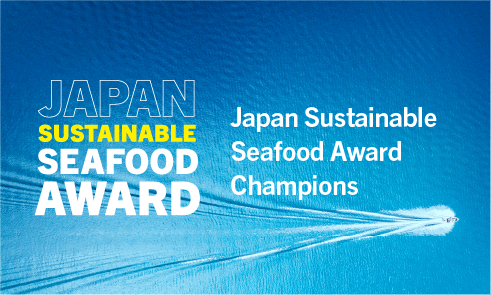
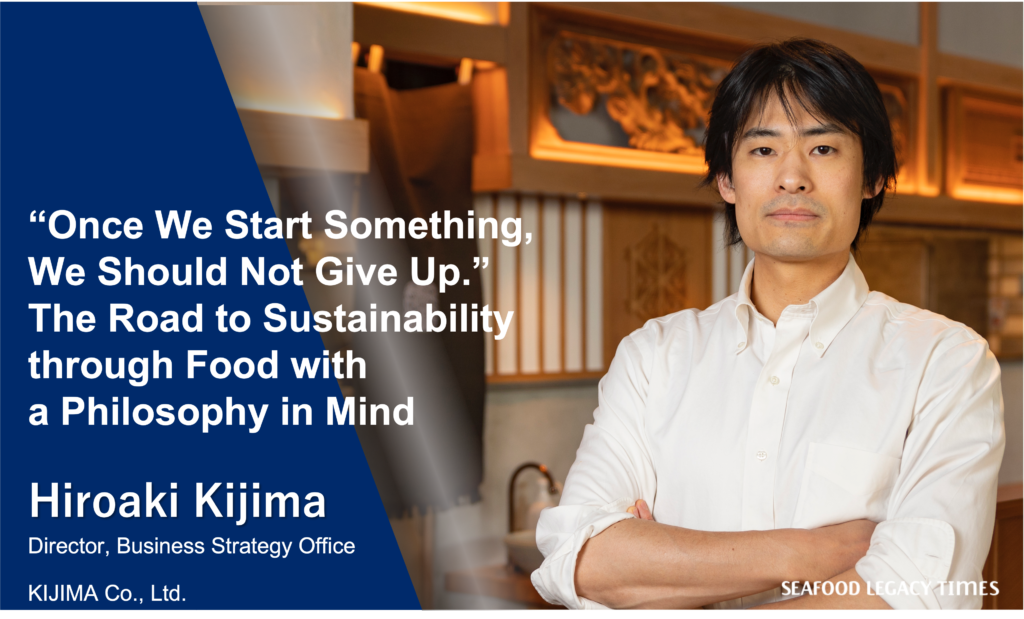
KIJIMA Co., Ltd. is a company that operates Japanese restaurants located mainly in Yokohama City, Kanagawa Prefecture. In 2017, KIJIMA overhauled its corporate philosophy and became heavily involved in sustainable initiatives. The key figure behind this transformation is Mr. Hiroaki Kijima, who heads the company’s Business Strategy Office.
KIJIMA has been actively introducing reliable and safe ingredients, such as switching to additive-free seasonings, becoming the first Japanese restaurant to obtain ASC/MSC CoC certification, using organic/naturally grown produce, and utilizing livestock raised in a manner that takes animal welfare into account. The company’s commitment to sustainability extends beyond its choice of ingredients to include detergents, packaging materials, restaurant interior, and even chopsticks. We interviewed Mr. Hiroaki Kijima to learn more about his thoughts and motivation behind these thorough efforts.
──KIJIMA has been involved in a wide variety of initiatives, but what is the company currently focusing on?
It’s hard to say “which,” but I think KIJIMA’s comprehensive approach, which might be described as too indiscriminate, might be a characteristic of Kijima as a result.
KIJIMA’s mission is to contribute to the creation and development of sustainable communities through food. The issues that need to be addressed naturally emerge when we align ourselves with this mission and decide on a course of action from there.
The issues we are engaged in are like puzzle rings with many interlocking aspects, so we are not naïve enough to think that we can resolve everything by simply working on any single issue.
For instance, the issue of ocean sustainability is related not only to overfishing but also to endocrine-disrupting substances in synthetic detergents and microplastics. Therefore, we have completely eliminated the use of petroleum-based surfactants at our restaurants. We have also switched from plastic to paper packaging for our lunch boxes. Another related issue is that of pesticides and chemical fertilizers flowing out of rivers and polluting the ocean. In response to this, we have promoted the use of agricultural products grown naturally without any pesticides or fertilizers at KIJIMA.
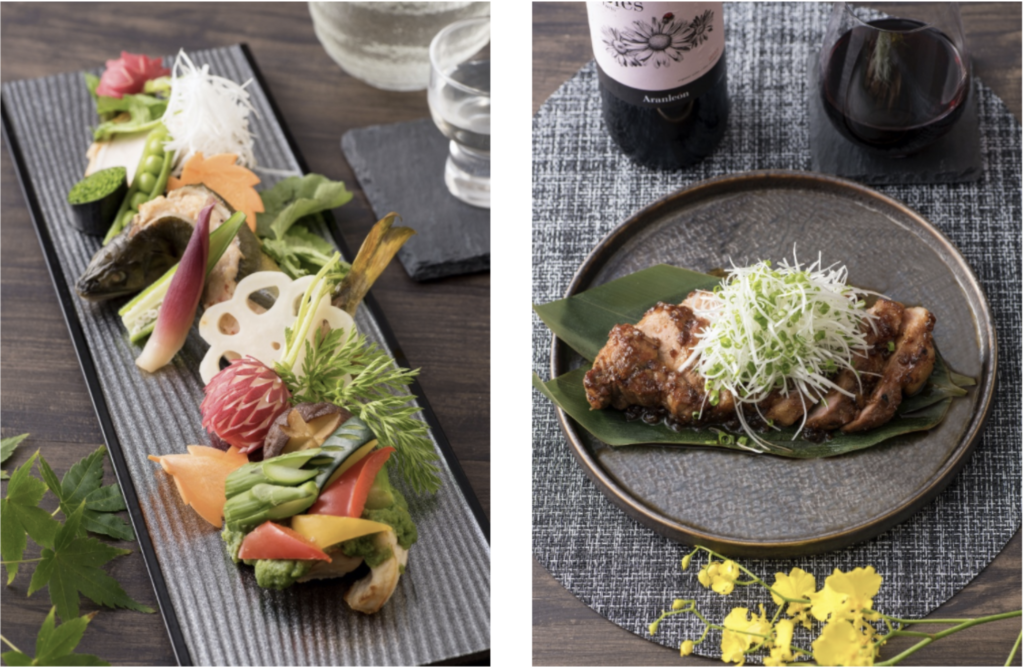
In fact, animal by-products are also related to the problems surrounding the ocean. The feces of livestock that has been raised on a large scale in unnatural ways such as the rampant use of GMO feed and antibiotics is currently polluting groundwater, rivers, and the ocean. For this reason, at KIJIMA, we promote the use of livestock raised on pasture or flat land and livestock raised on Non-GMO feed.
As you can see, these issues are connected in various ways and are multifaceted in nature, which gives rise to a variety of different approaches. Therefore, we feel that we have no choice but to work on a range of issues concurrently.
In 2020, we launched the KIJIMA Organic Challenge to share our initiatives with our customers in an easy-to-understand manner by providing them with a data-based visualization of KIJIMA’s initiatives. For instance, we released the figures for the proportions of MSC-certified products and organic/naturally-grown agricultural products used at our restaurants. As of November 2020, 7.5% of our marine products are MSC-certified and 60% are ASC-certified. We aim to achieve 20% MSC-certified products and 100% ASC-certified products by 2021.
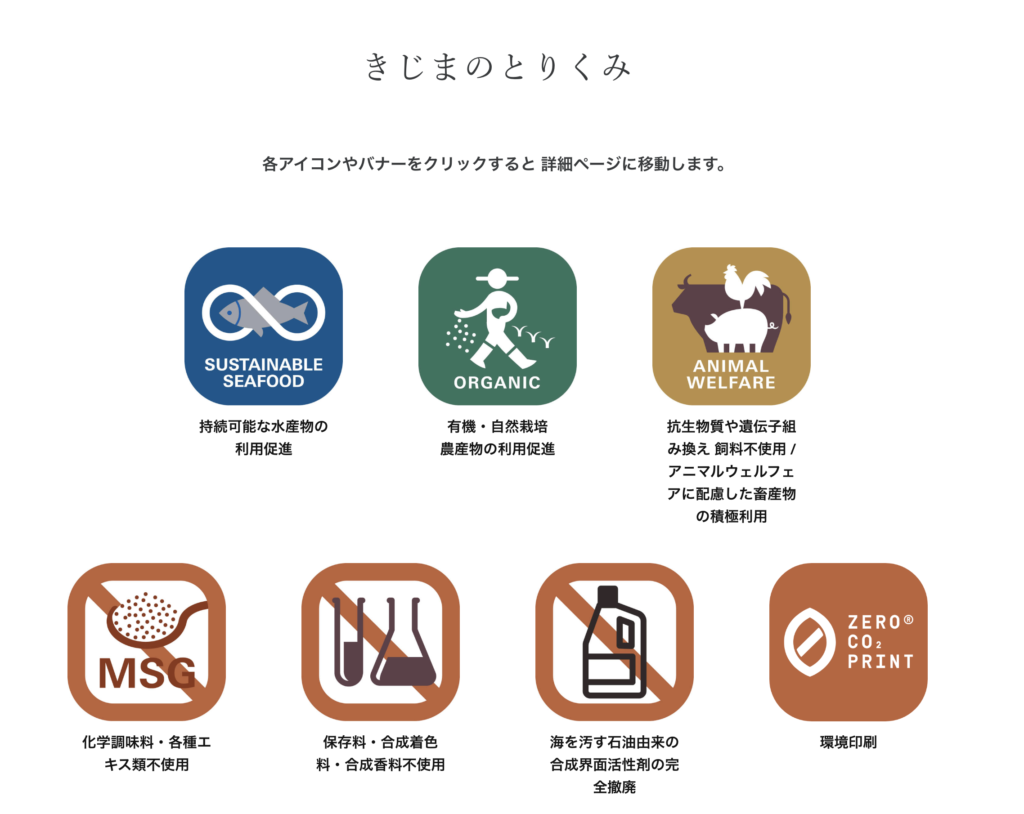
──As someone who adopts such a thorough approach to addressing these problems, can you tell us how you became interested in issues of sustainability and the environment?
It is difficult for me to say which was the decisive moment. I think it was the result of a combination of different factors and experiences. For instance, when I was studying abroad in North America as a university student, I came across supermarkets that sold organic food products. I was amazed by the differences between Japan and the United States in terms of the variety of products available in stores, how busy the stores were, and how lively their employees were.
Also, environment issues were the global attention during my high school and university years. The documentary An Inconvenient Truth on the subject of global warming became a hot topic, which prompted me to read many books about the environment.
And then, in 2011, the Great East Japan Earthquake struck. I visited the disaster area with my father in the immediate aftermath of the earthquake, and I was shocked by how devastating nature could be. I witnessed the massive damage to a fishing port in Ofunato with which we were doing business, and I remember feeling extremely anxious about the future of fisheries.
These various experiences in my life have contributed to my interest in sustainability issues.
One reason why these experiences have had a huge impact on me is because I have always been familiar with primary industries. When I was a child, I went to the market with my father in a truck to stock up on live fish. At home, we had a fish preserve with huge fish in it. I grew up in an environment where I was always within touching distance of not only fish but also vegetables and condiments.
My father, who is the representative of KIJIMA, always had a strong affinity with primary industries. As someone who had personally visited production areas in his boots, he was thinking about the freshness of the ingredients as well as the fishermen’s ability to create a sustainable business. For over thirty years, he has insisted on purchasing fish at fair prices, regardless of the catch volume. I have also often heard stories about my father from others.
──When did you start to consider working in the food industry?
It was not as if I made up my mind at some point to join KIJIMA. It felt like something that I already knew would eventually happen. As some might say in English, “I knew it.” (laughs)
However, my father understands how unforgiving the F&B business is, and he initially did not want his son to inherit his business. So, after graduating from university, I found a job at a consulting company. I was no good at it, and I quickly resigned after realizing I could not continue. After all, I spend 95% of my waking hours thinking about food. I love food, and I often think about how delicious something looks or how something could be made. Once I start thinking about food, there is no end to it.
Eventually, I felt myself being drawn to the culinary world, and I left the company I was working at after around a year. I decided to go out and learn how to cook. Since I was going to learn cooking, I wanted to do it in a country with a vibrant organic food culture, so I enrolled in a culinary school in New York. I also trained at the restaurant Blue Hill when I was a culinary school student. In this way, little by little, I entered the culinary world.
──You joined KIJIMA after returning to Japan, but didn’t your father object to that?
My father’s response was basically a firm “no,” so it did feel a bit like I had to force myself into KIJIMA at first. The first thing I did after returning to Japan was the renewal of Management Philosophy. I set a new mission for KIJIMA, which is to contribute to the creation and development of sustainable communities through food, something I have mentioned just now.
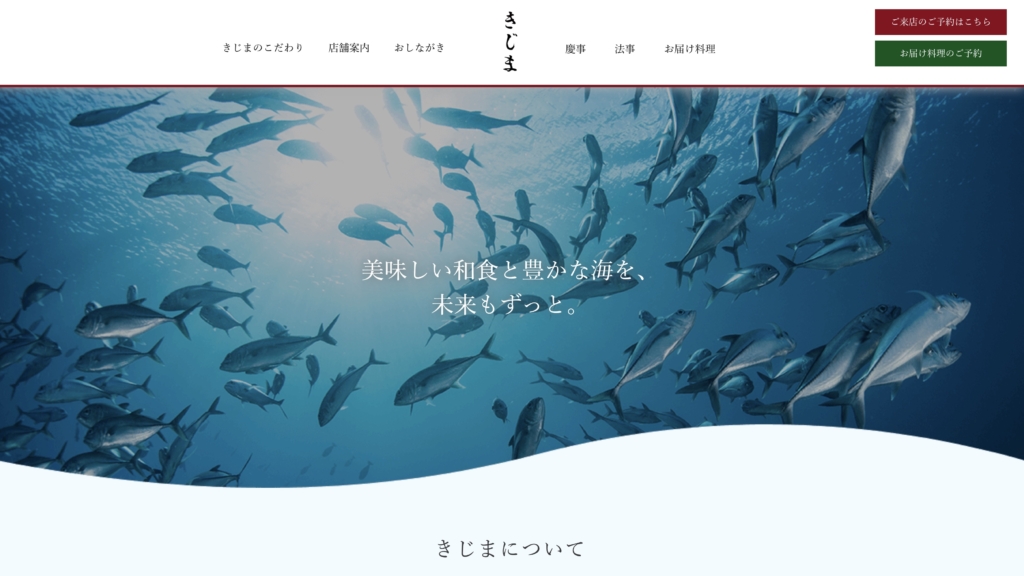
In fact, as I became more and more attracted to a sustainable lifestyle, my family naturally started to be influenced by this concept as well. Gradually, we felt that there was a discrepancy between what we were offering our customers and what we thought was the ideal that we should strive for.
For the meals we prepared at home, we were using vegetables and rice that are organically or naturally-grown, as well as additive-free condiments. My father became convinced that these ingredients were safer, more reliable, and more delicious and that we should definitely offer them to our customers. I believe my father had been gradually moved by the quality of these ingredients. However, there was an issue with the cost rates. The prices of the soy sauce, miso, and vinegar that we wanted to use were at least double to several times higher than those of what we were using then. My father said to me, “Do you really think you can run an organic F&B business?” Indeed, if we had gone ahead with those prices, there was no doubt that we would go bankrupt.
However, I refused to give up. I went to the kitchen and talked to everyone on the ground. For a start, we worked on revamping the condiments, but once we did that, we had to modify all our recipes. Still, I was very grateful for the cooperation of all our employees.
To resolve the issue with the cost rates, we did everything we could to reduce waste at the company. We had already invested in IT several years ago, so we digitalized all our systems for customer management, recipe development, and time management as a means of eliminating waste. As a result, working hours have been reduced by tens of thousands of hours per year.
By starting with making a switch to organic condiments, we were eventually able to actively incorporate the use of sustainable ingredients such as vegetables, meat, and fish into our dishes.
1_light-1024x683.jpg) Condiments for KIJIMA’s dishes
Condiments for KIJIMA’s dishes
──It seems like your expenses would rise each time you change your ingredients. Did that give you any pause?
To be honest, we probably hadn’t thought about how we could do it. Rather, we wanted to first achieve the goals we had set out to achieve. This is because there is no middle ground for initiatives like these. The only choices we have are to do or not to do. For instance, our effort to eliminate the use of additives required a transition period of several years, but we could not announce anything until we had achieved it. So, after we start doing something, we don’t give up until we get to the other side. I am often asked how we did, but the only explanation I could give is that we always had a strong determination, and overcame with spirit and guts (laughs).
──KIJIMA opened a new restaurant in Minato-Mirai in June 2020. A lot of thought seems to have gone into not only the ingredients used but also the interior of this restaurant.
We used FSC-certified wood for the counters and flooring at this restaurant, which ensures that the wood is derived from forests that have been responsibly managed. The chopsticks are also made from FSC-certified wood. The restaurant interior was inspired by the image of a classic Japanese storehouse, and we have created a traditional Japanese space by utilizing materials that are over 100 years old.
The opening of this restaurant coincided with a challenging period for us during the COVID-19 pandemic, but I am glad that we opened it. At first, we did not expect customers to come to our restaurant because they appreciated our sustainable efforts, but recently I feel that we have been getting more and more people saying to us, “This is the kind of restaurant you are talking about, isn’t it?”
When we serve a sashimi platter and tell customers that the fish is MSC-certified, they would ask where the fish was caught or tell us that they have read about it in the newspaper. We are delighted that we have been having more and more conversations like these.
3_light-1024x683.jpg) The interior of KIJIMA’s Minato-Mirai restaurant
The interior of KIJIMA’s Minato-Mirai restaurant
──What is the significance of KIJIMA’s emphasis on sustainability at all of its restaurants?
To tell you the truth, even though we are working aggressively on this kind of project, we are always skeptical about what we are doing.
Would people appreciate what we are doing? Is it meaningful for us to do things like these? To be honest, these are questions to which we still do not have clear answers.
Personally, I do not think that KIJIMA’s initiatives will create a massive movement. There are probably not many restaurants that are willing to emulate us. However, at the very least, we can say that we are in a position where we can run a business without betraying our conscience. We also feel that the dishes we serve at our restaurants are very safe and reliable. We are confident that we are approaching a situation where we can feel good about our business moving forward.
11_light-1024x683.jpg)
──Finally, is there anything that KIJIMA hopes to work on in the future?
There isn’t really anything that we want to start at this moment, for the very reason that there is nothing we can look at now and say, “This is perfect.” The percentage of the KIJIMA Organic Challenge has not yet reached 100%, so I think our only option is to work honestly towards our current goals. However, if we find anything that does not suit the philosophy that we have set out initially, we will make changes. We have the systems and routines in place for our initiatives, so we need to push on and make progress.
I believe that the most important part of this journey is to have a philosophy that we can always return to. If we start on the wrong foot and proceed blindly, problems will appear. These problems will recur the more we try to hide them. This is something that can be said of our current warped food system that pays no attention to the primary industries, but it applies to many other things as well.
We always return to our philosophy that we started with and remind ourselves of what our purpose and goals are in the first place. I believe that it is absolutely essential for us to always move forward while keeping in mind and cherishing the philosophy that we started with.
Hiroaki Kijima
Hiroaki Kijima was born in 1991 in Yokohama City, Kanagawa Prefecture. After graduating from the School of Culture, Media and Society, Waseda University, he studied culinary arts at the International Culinary Center in New York, United States, and spent a year training at Blue Hill, a farm-to-table restaurant. He joined KIJIMA Co., Ltd. in 2018 and currently serves as the director of the company’s Business Strategy Office.









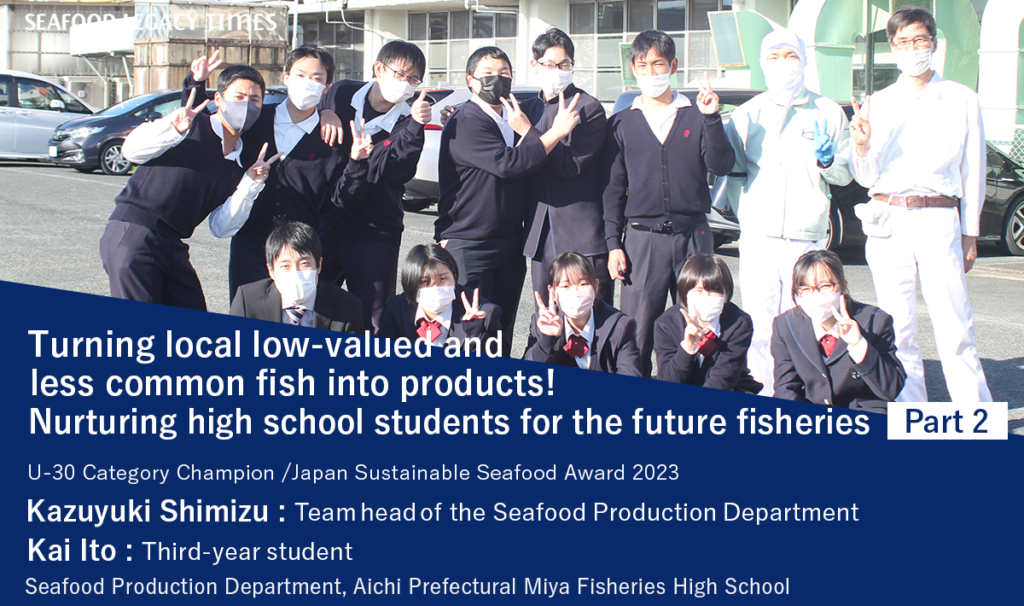
-1024x606.png)


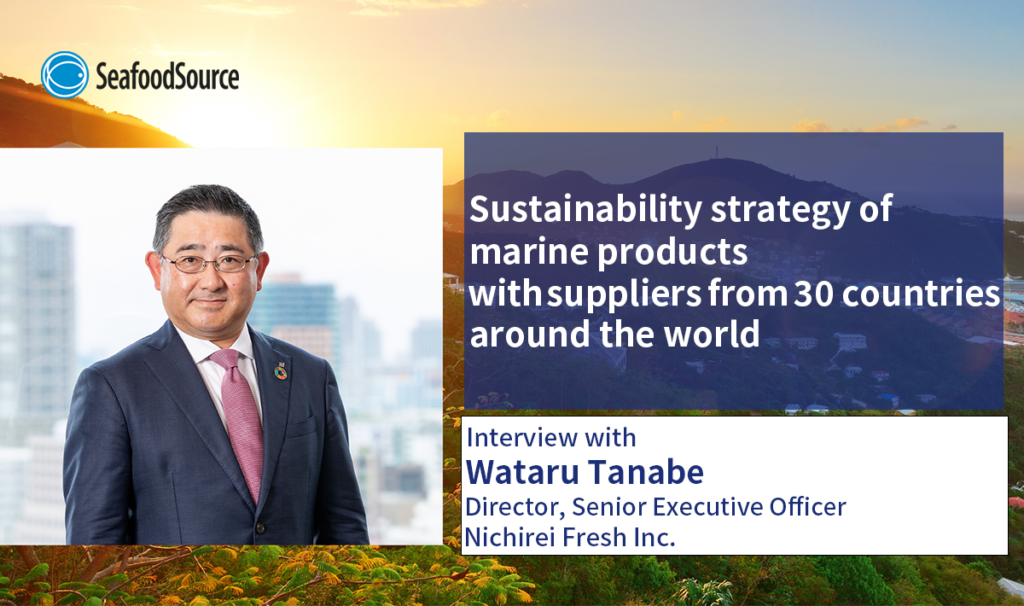
_-1024x606.png)

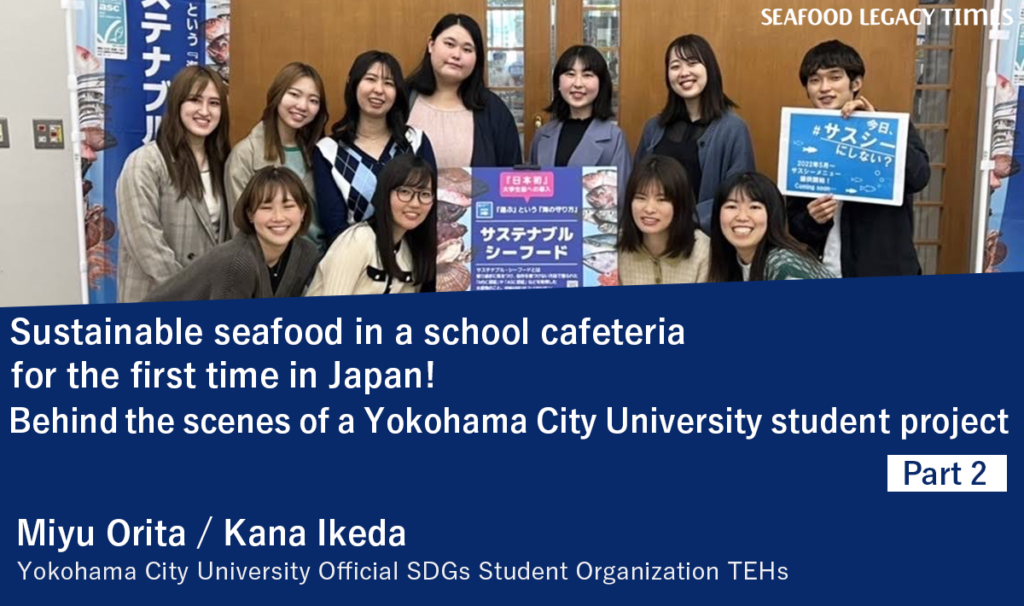
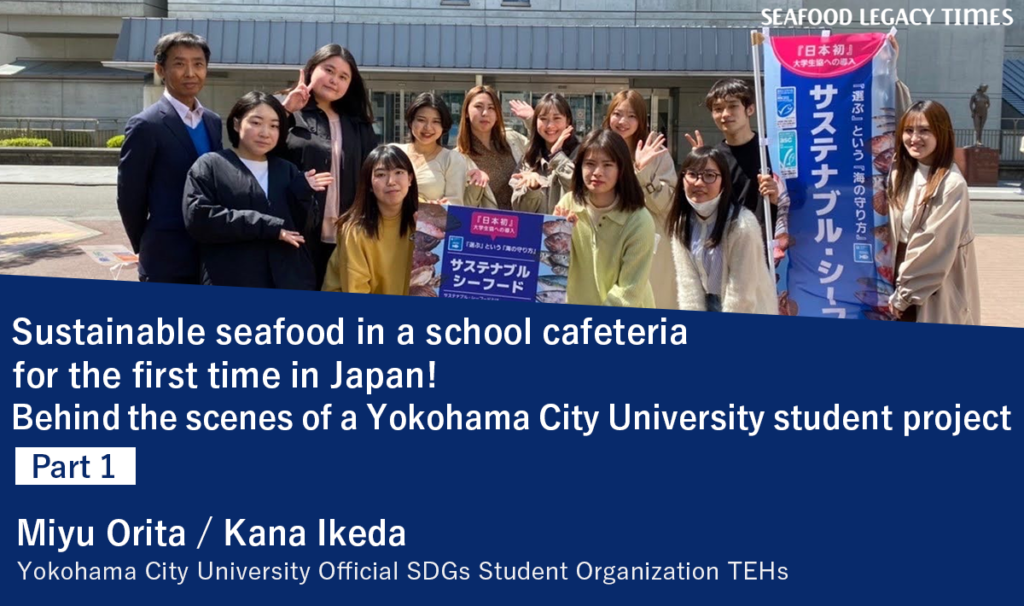



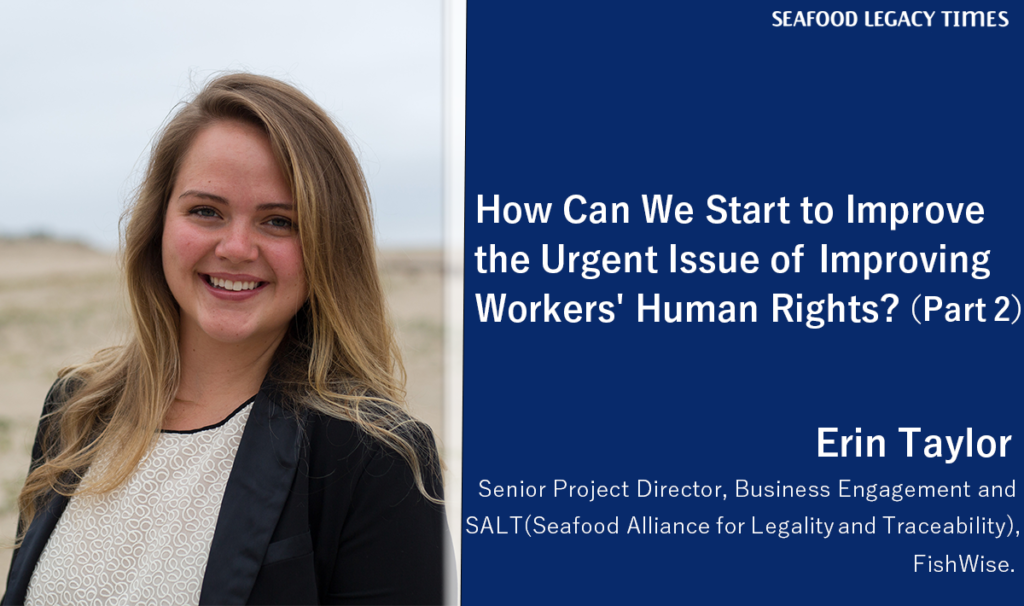
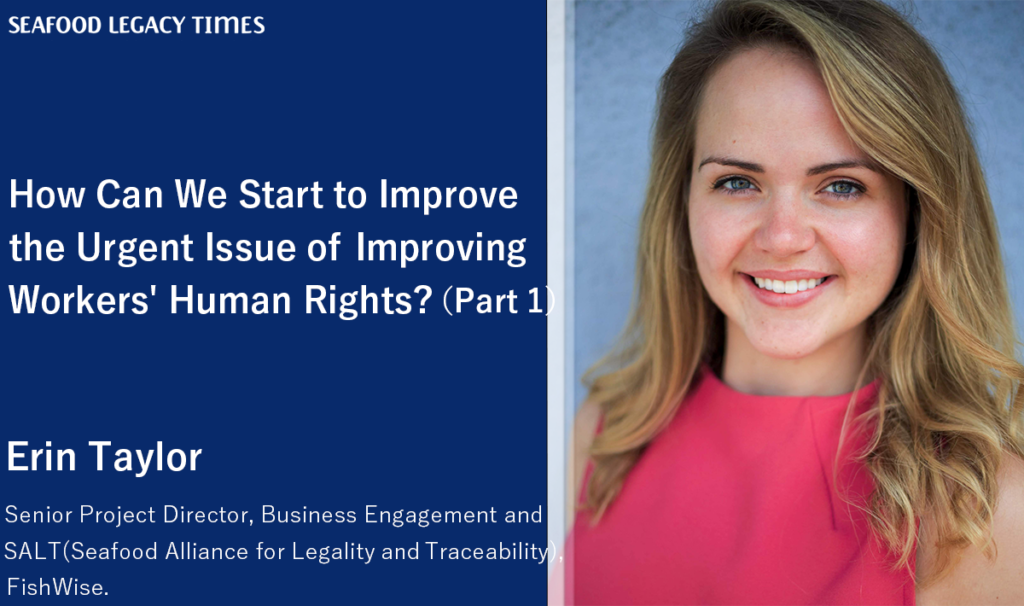
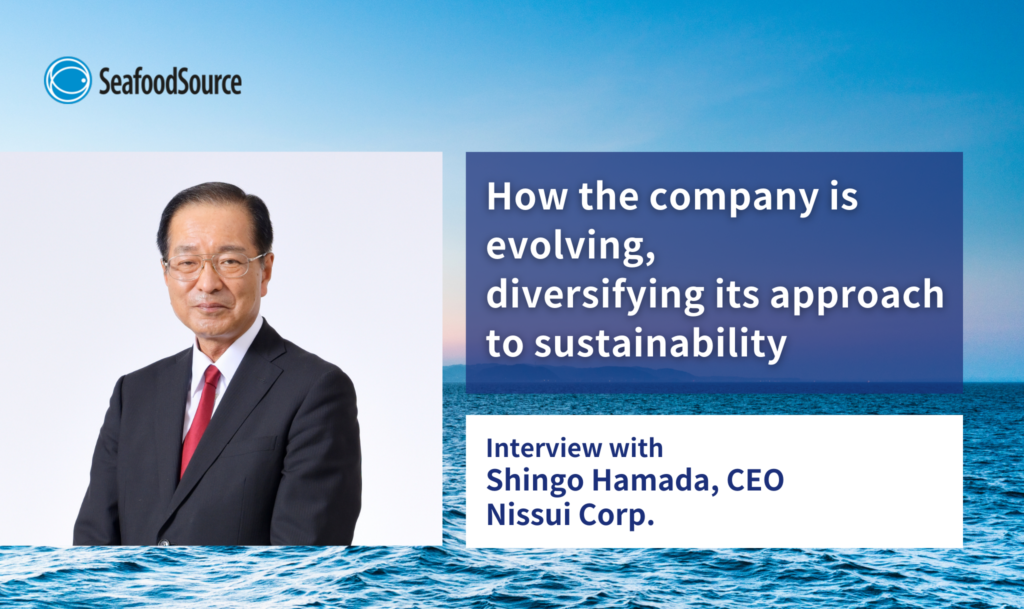




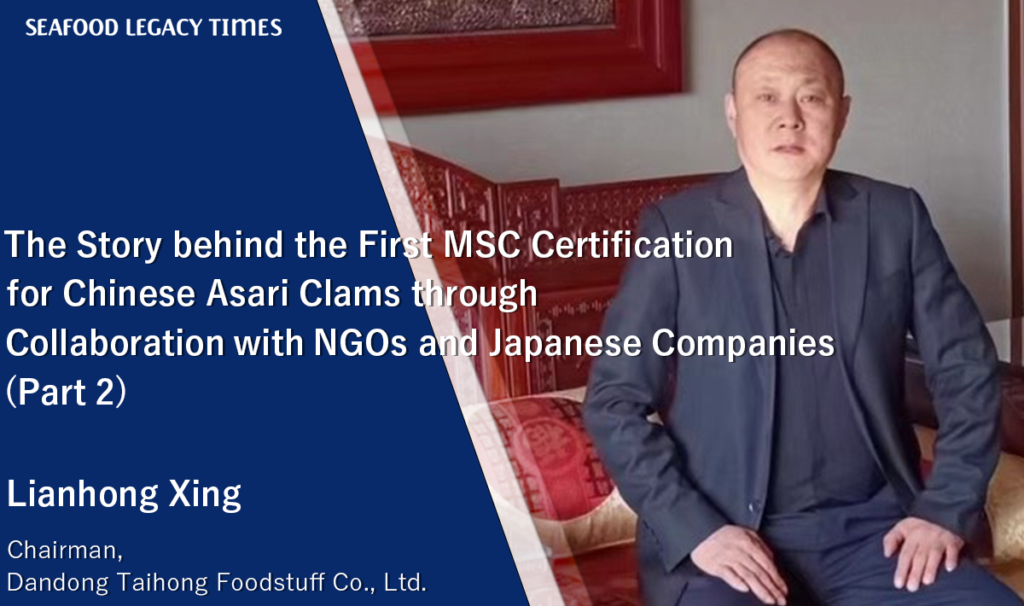
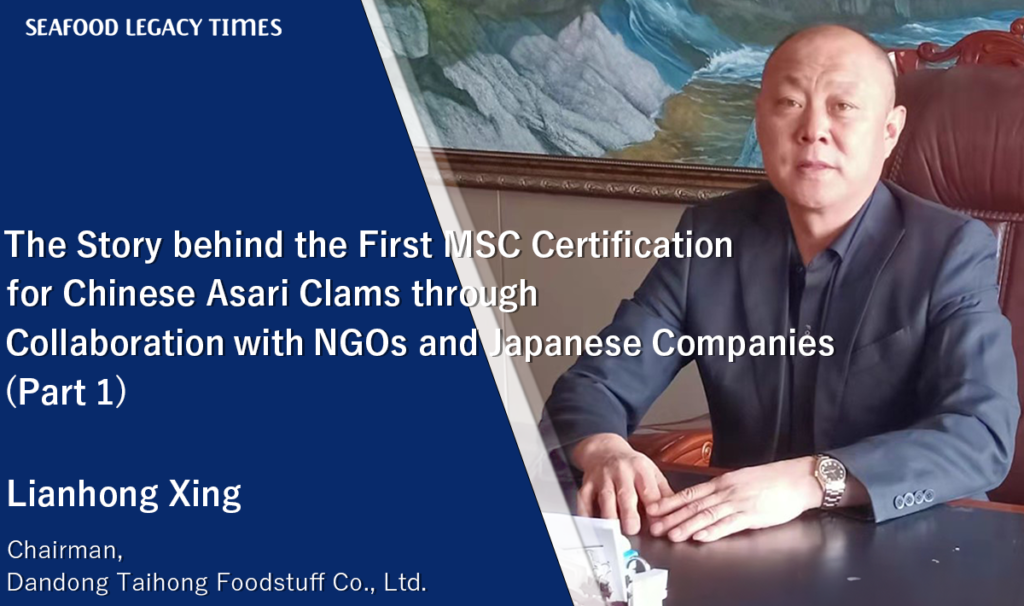

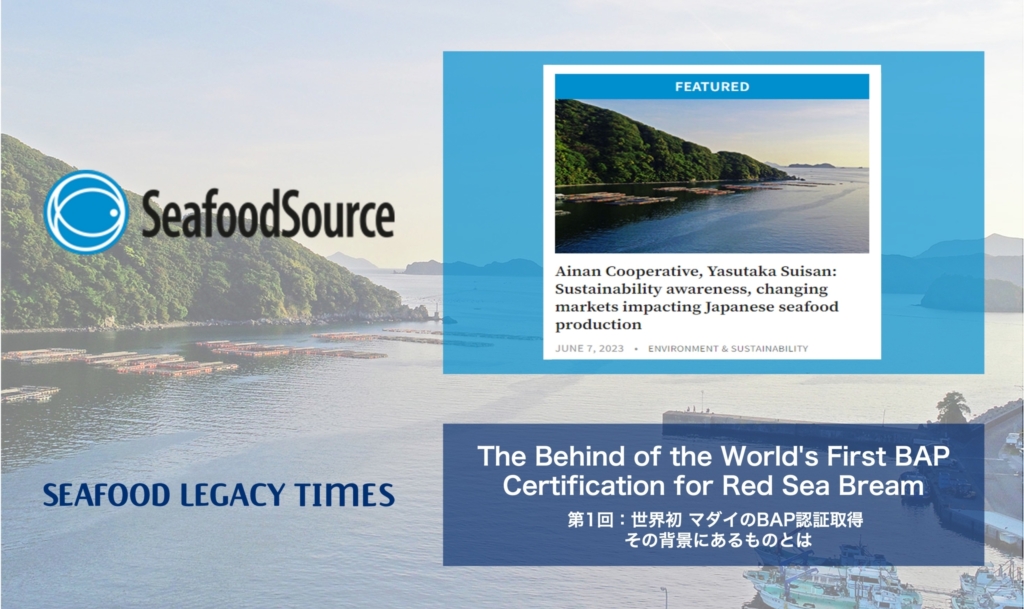

1_修正524-1024x606.png)


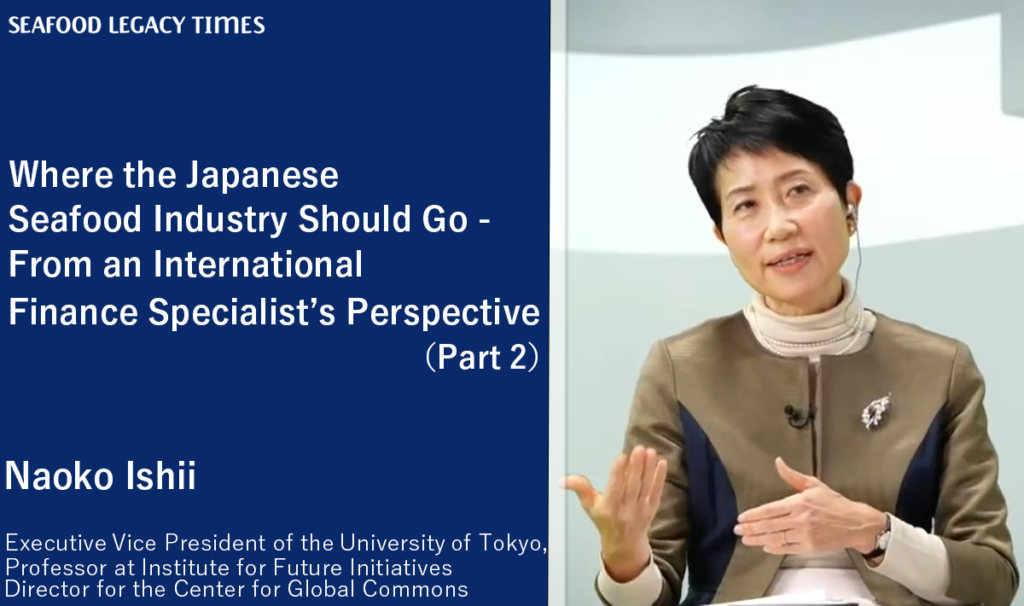







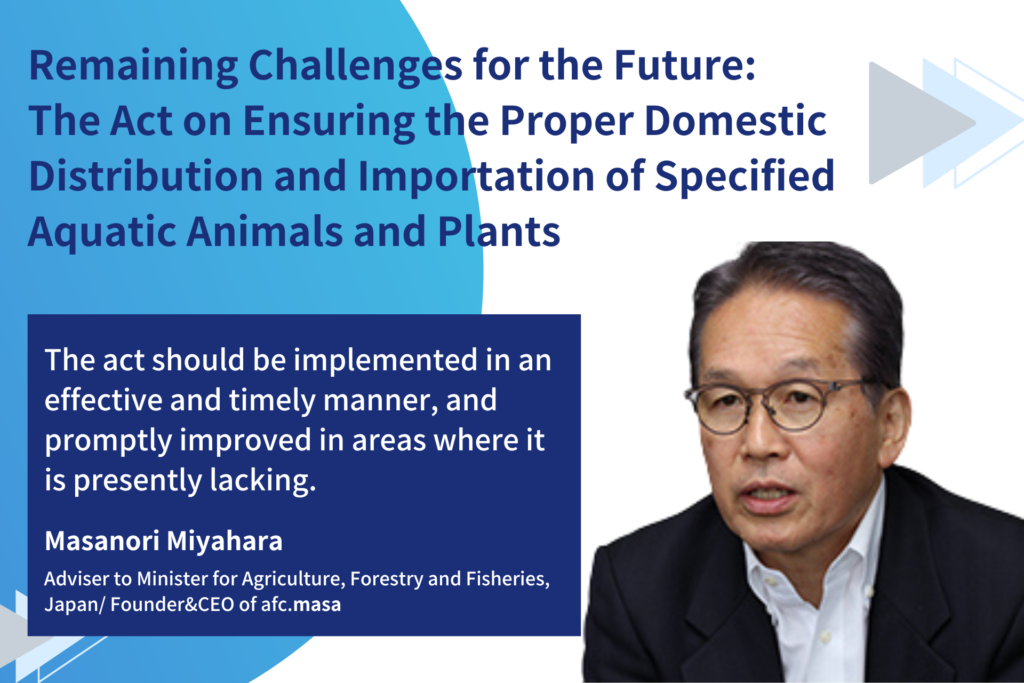
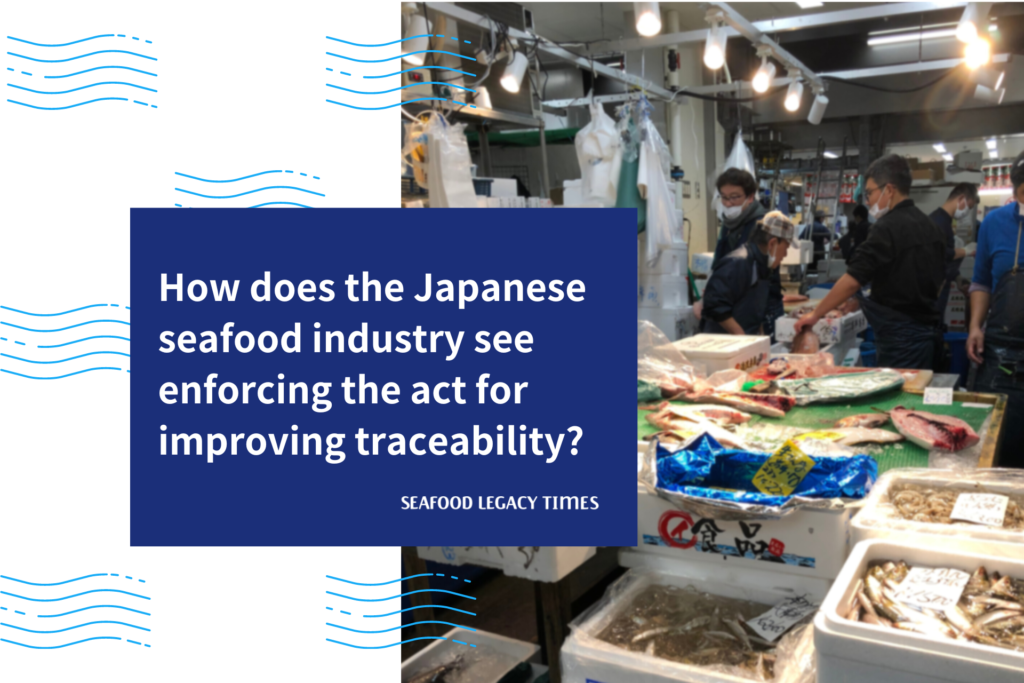



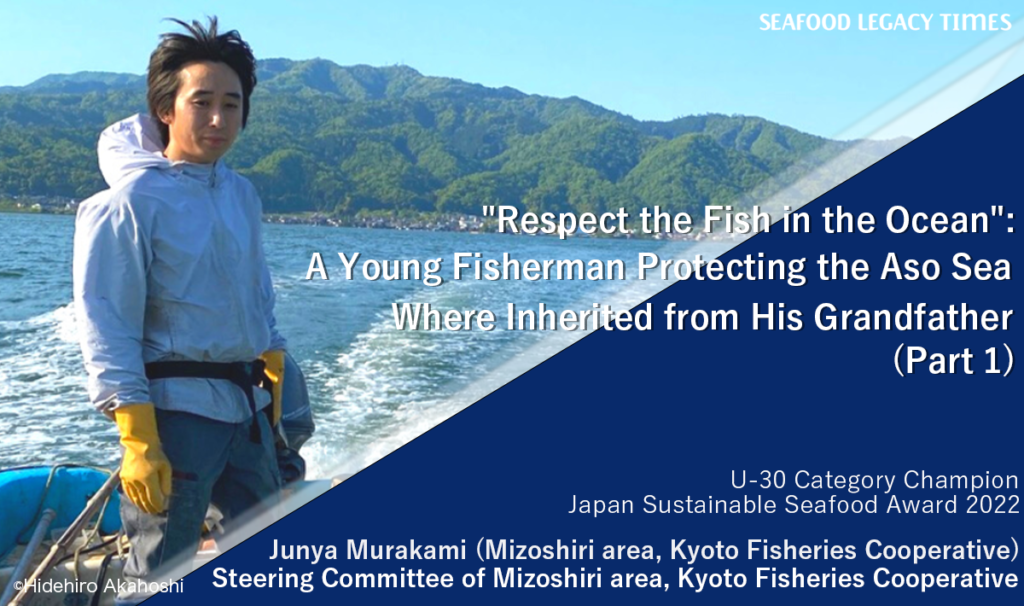
.2-1024x606.png)
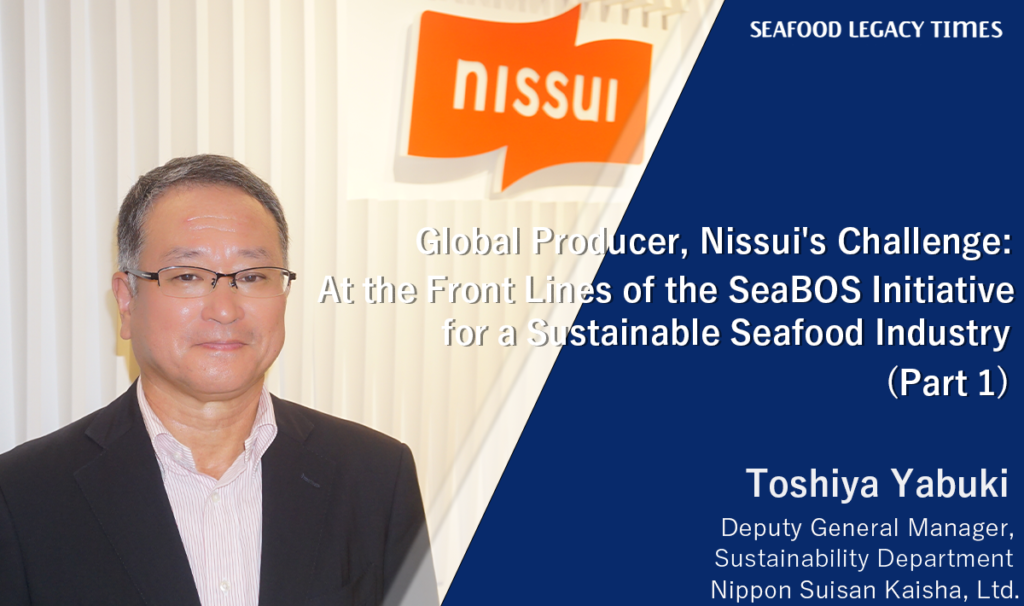
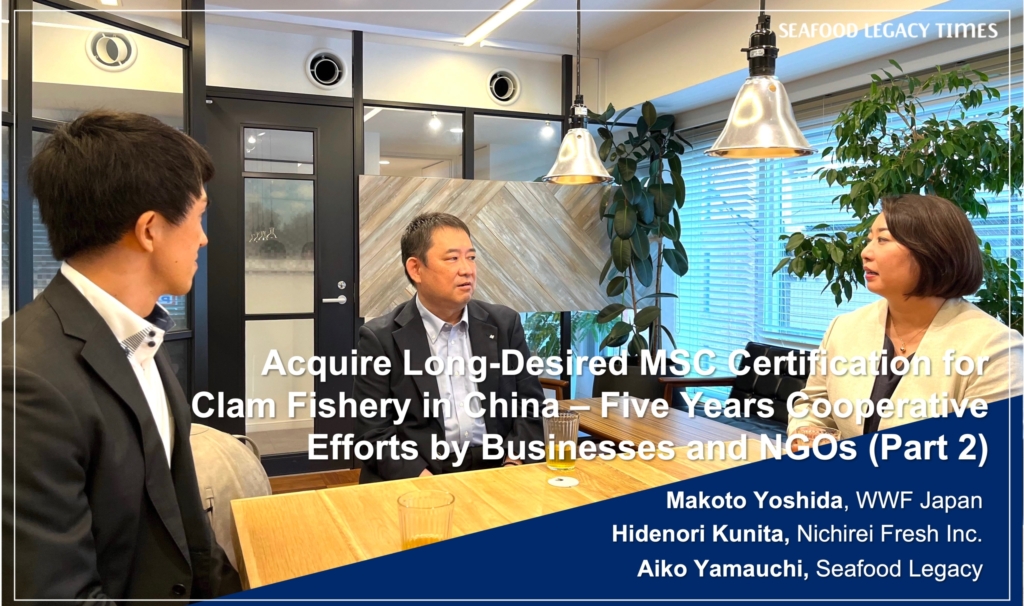
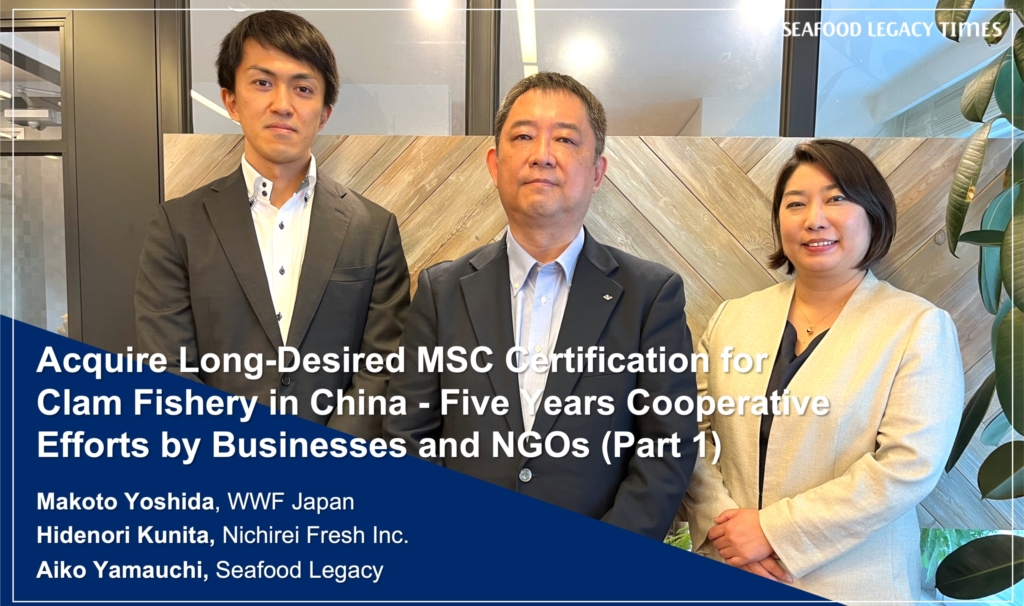






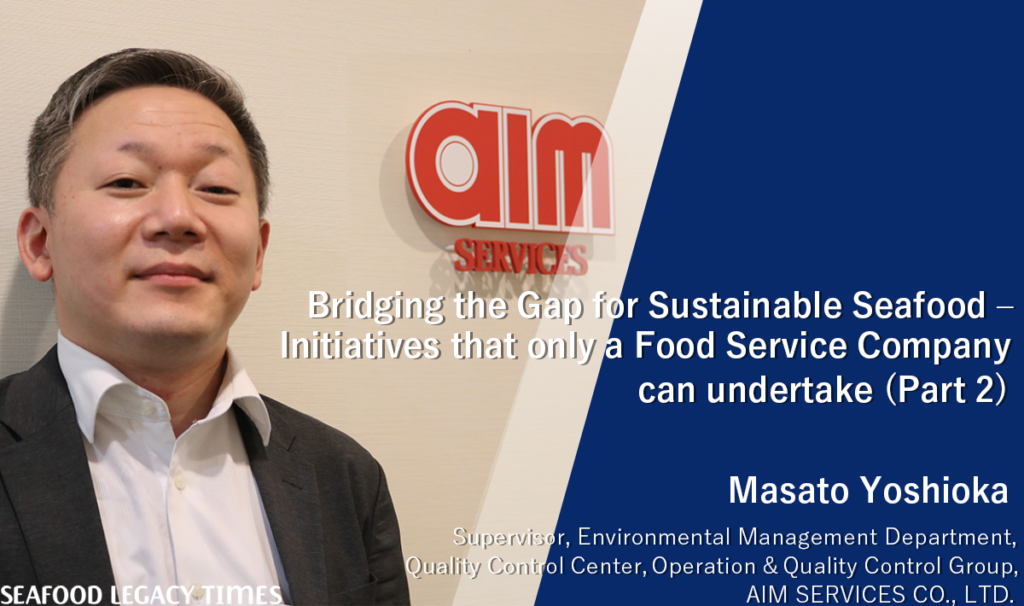
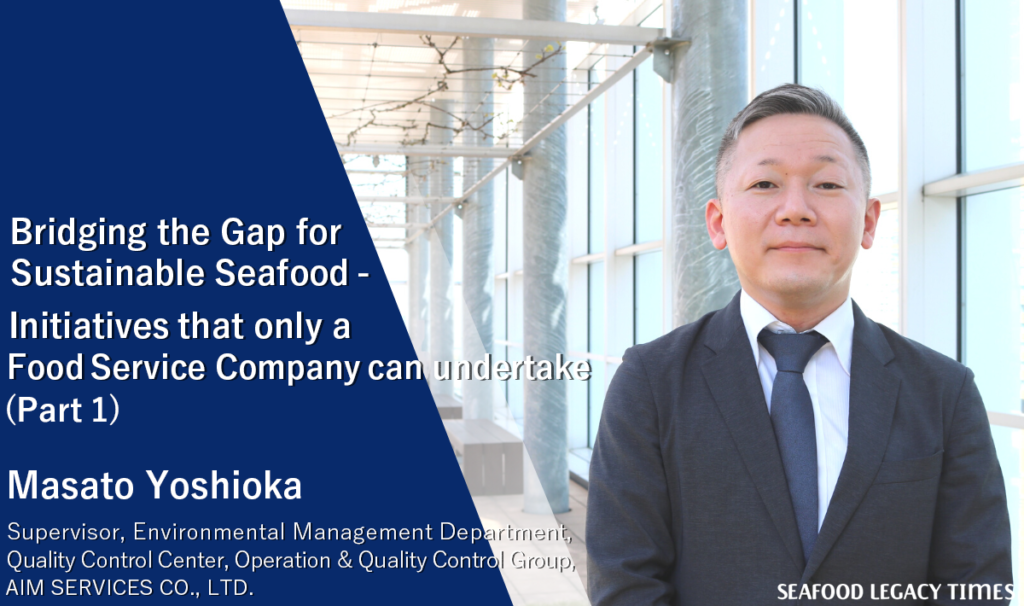
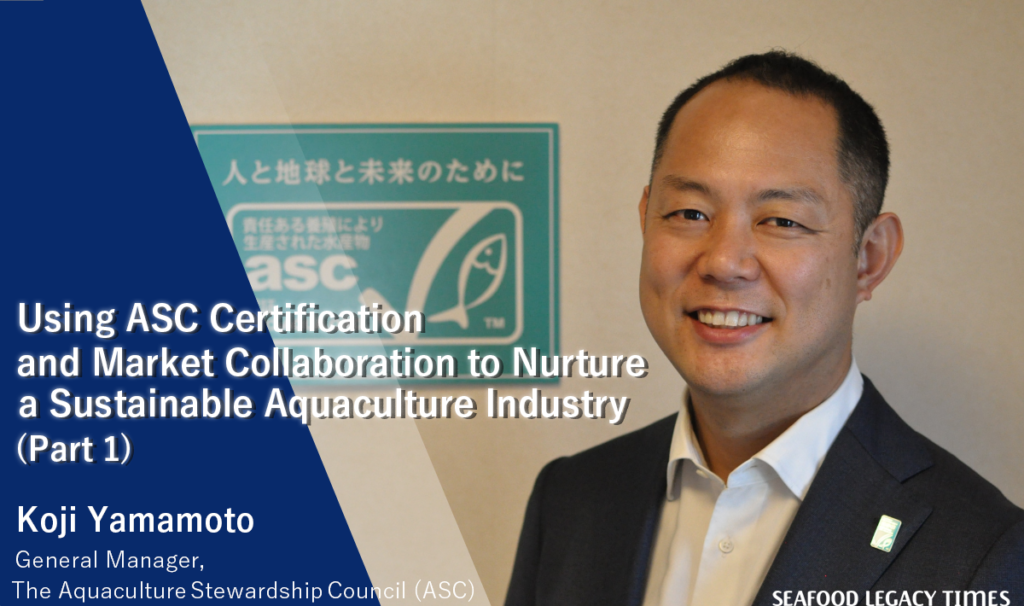
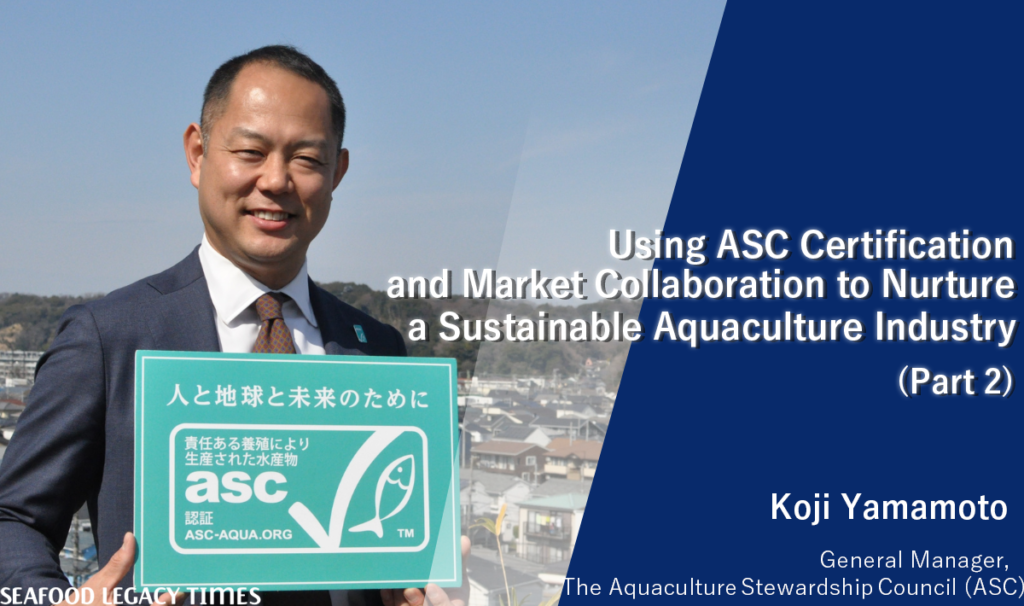
2-1024x606.png)
-1-1024x606.png)
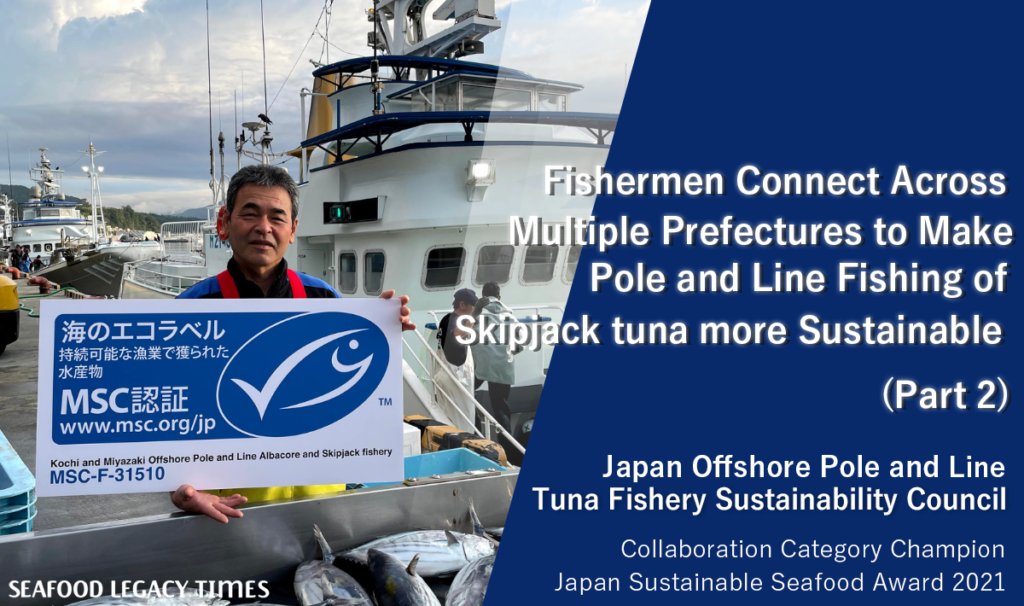
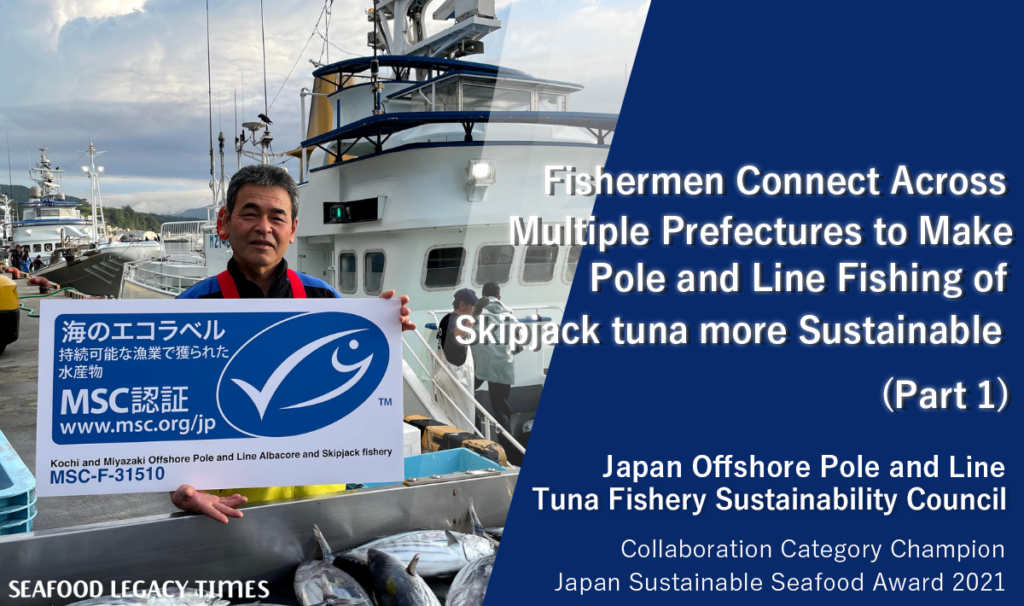
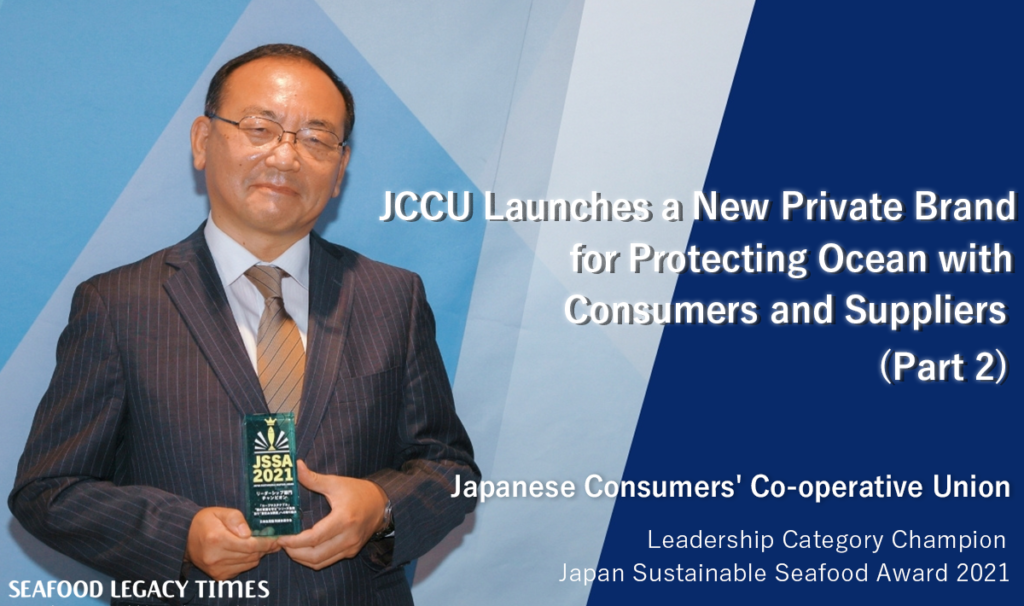
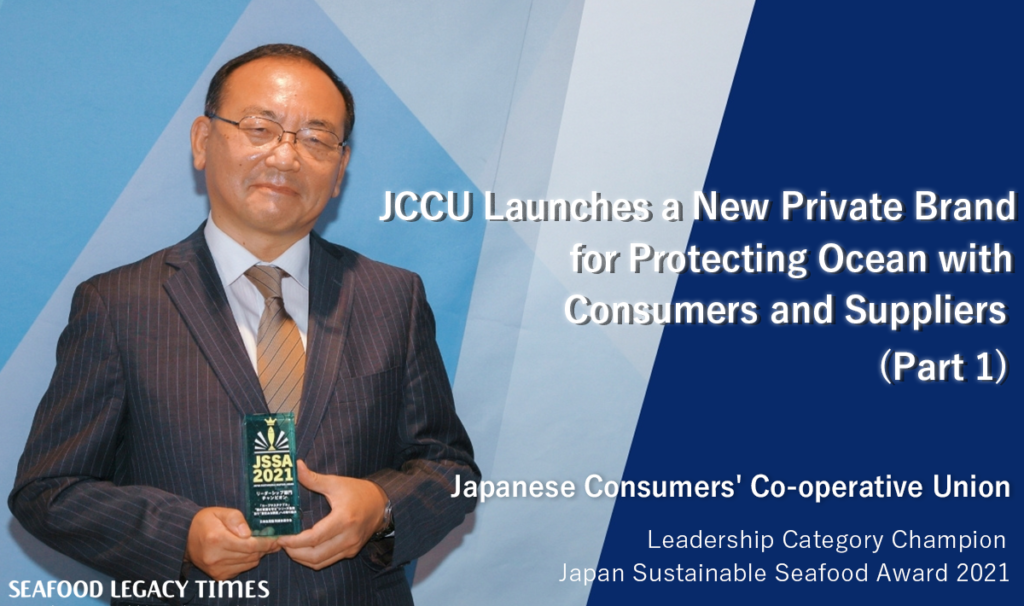
Part2-1024x606.png)
Part1-1024x606.png)
